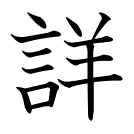In another article on how to read Hiragana, I discussed how to pronounce certain vowel combinations such as おう、えい、and いい. Most often, textbooks and other Japanese language learning resources will tell students that おう and おお are pronounced exactly the same, and the difference is merely due to historical orthography. In most cases, this is true. However, this simplification is not entirely accurate and ignores a crucial distinction that all native Japanese speakers intuitively make.
The issue here has to do with morphemes. A morpheme, as you might know, is the smallest unit of language that has a concrete meaning. A word, by contrast, can be composed of one or more morphemes. For example, the English word cats is made up of two morphemes, cat and the plural marker -s. Another example is the word unforgettable, which is made up of three morphemes, un-, forget(t) and -able. Each unit carries its own distinct meaning and contributes to the meaning of the overall word.
Japanese has morphemes too. For example, the word 横断 (おうだん)which means crossing, is comprised of two Sino-Japanese morphemes, おう and だん . Another example is the verb 思う, meaning to think, which in the dictionary form is also comprised of two morphemes, the stem おも, and the non-past affirmative marker, う.
Notice here that both the words おうだん and おもう contain the vowel sequence おう. In the word おうだん, the sequence おう is fully contained within the boundary of a single morpheme. However, in the word おもう, the sequence おう crosses a morphemic boundary. As a result, these two words pronounce おう differently.
The general rule is as follows: if おう occurs within a single morpheme, it is pronounced identically to the long vowel おお, as is typically taught, but is pronounced as two distinct sounds, お and う, when it occurs across a morphemic boundary. So おうだん is pronounced as おおだん and おもう is pronounced as おも・う, and not おもお.
Let’s look at a few more examples:
高校 ー こうこう (Highschool)
In this example, each こう is its own morpheme and so this word is pronounced こおこお
お歌 ー おうた (Song)
Here, おう occurs across a morpheme boundary. お is an honorable prefix and うた is the base word for song. So this word is pronounced お・うた
暖房 ー だんぼう (Heating)
This word contains two morphemes, だん and ぼう. Since ぼう is a single morpheme, it is pronounced as ぼお.
誘う ー さそう (To invite)
Lastly, this word is composed of two morphemes, the base さそ, and the non-past affirmative marker う. Since おう occurs across a morpheme boundary, it is pronounced as さそ・う.
